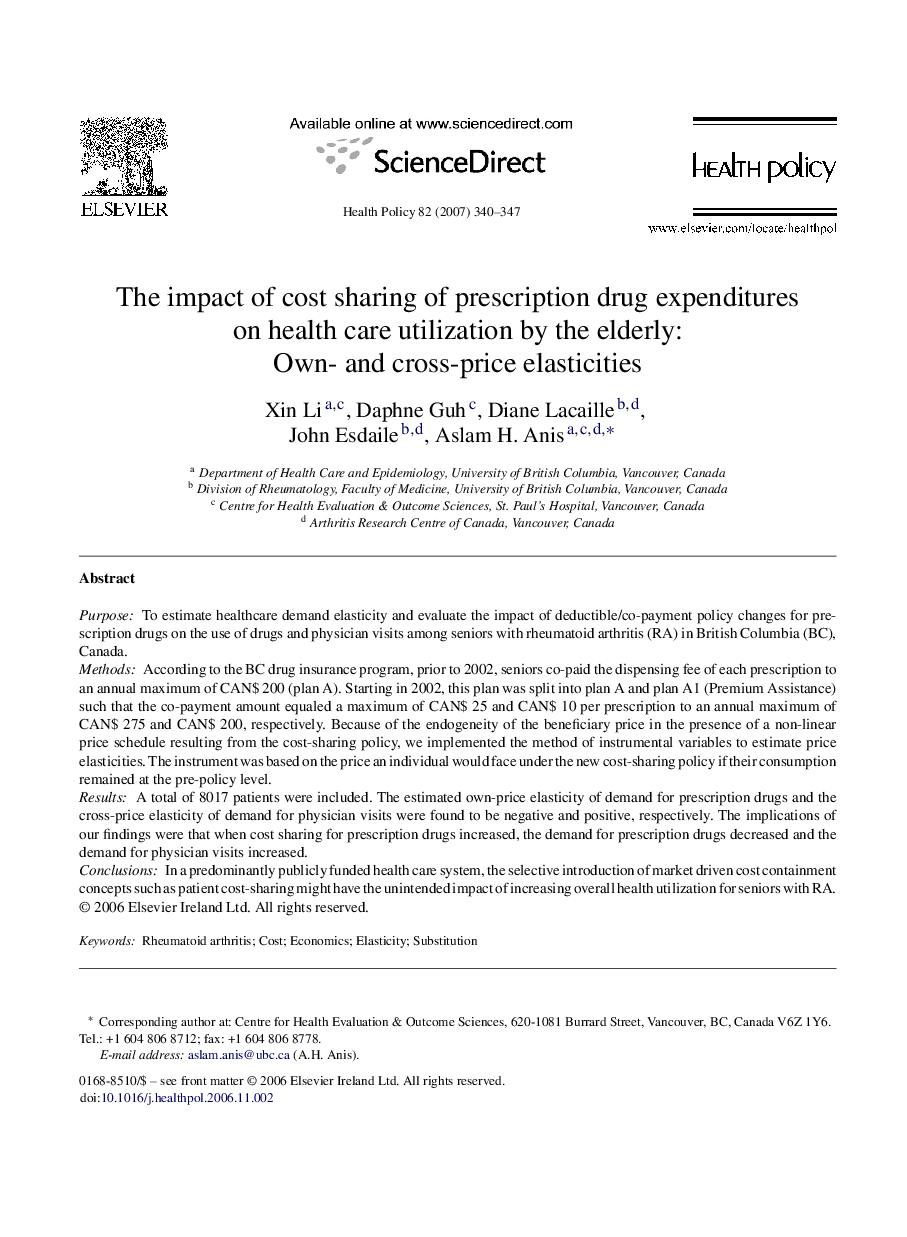| Article ID | Journal | Published Year | Pages | File Type |
|---|---|---|---|---|
| 4198853 | Health Policy | 2007 | 8 Pages |
PurposeTo estimate healthcare demand elasticity and evaluate the impact of deductible/co-payment policy changes for prescription drugs on the use of drugs and physician visits among seniors with rheumatoid arthritis (RA) in British Columbia (BC), Canada.MethodsAccording to the BC drug insurance program, prior to 2002, seniors co-paid the dispensing fee of each prescription to an annual maximum of CAN$ 200 (plan A). Starting in 2002, this plan was split into plan A and plan A1 (Premium Assistance) such that the co-payment amount equaled a maximum of CAN$ 25 and CAN$ 10 per prescription to an annual maximum of CAN$ 275 and CAN$ 200, respectively. Because of the endogeneity of the beneficiary price in the presence of a non-linear price schedule resulting from the cost-sharing policy, we implemented the method of instrumental variables to estimate price elasticities. The instrument was based on the price an individual would face under the new cost-sharing policy if their consumption remained at the pre-policy level.ResultsA total of 8017 patients were included. The estimated own-price elasticity of demand for prescription drugs and the cross-price elasticity of demand for physician visits were found to be negative and positive, respectively. The implications of our findings were that when cost sharing for prescription drugs increased, the demand for prescription drugs decreased and the demand for physician visits increased.ConclusionsIn a predominantly publicly funded health care system, the selective introduction of market driven cost containment concepts such as patient cost-sharing might have the unintended impact of increasing overall health utilization for seniors with RA.
